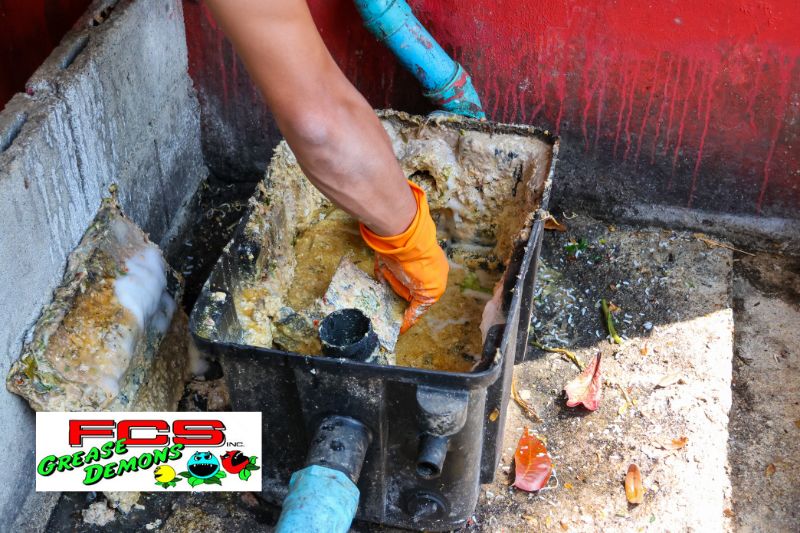The Importance of Grease Trap Cleaning
Grease traps play a crucial role in maintaining the efficiency, health, and safety of your commercial kitchen. Regular cleaning not only prevents costly plumbing issues but also protects your staff, customers, and the environment. Additionally, grease trap maintenance supports sustainable practices, such as recycling used cooking oil, which can significantly reduce your environmental footprint. Here’s why keeping your grease trap clean is essential for your business.
1. Prevents Drainage Problems
Grease traps capture fats, oils, and grease (FOG) before they enter the plumbing system. Over time, these substances can solidify and cause clogs, leading to costly repairs and operational downtime. Regular cleaning ensures smooth drainage and prevents backups.
2. Maintains a Healthy Work Environment
Accumulated grease can emit foul odors that compromise the cleanliness and comfort of your kitchen. These odors can also seep into customer areas, affecting their dining experience. By scheduling frequent grease trap cleaning, you maintain a pleasant and hygienic environment for both staff and patrons.
3. Reduces Fire Hazards
Grease buildup is highly flammable and poses a significant fire risk in a kitchen setting. Regular cleaning minimizes the accumulation of combustible materials, ensuring the safety of your employees and property.
4. Ensures Regulatory Compliance
Health and environmental agencies have strict regulations regarding grease trap maintenance. Failure to comply can result in hefty fines or even temporary business closure. Routine cleaning helps your business meet legal standards and demonstrates your commitment to health and safety.
5. Supports Sustainable Practices
Used cooking oil collected during grease trap maintenance can be recycled into biodiesel, animal feed, or other renewable products. By partnering with a service provider that recycles FOG waste, you contribute to environmental sustainability.
The Role of Used Cooking Oil Recycling in Grease Trap Cleaning
One of the lesser-known benefits of grease trap cleaning is the opportunity to recycle used cooking oil. Here’s how the process works and why it matters:
1. Collection and Processing
- During grease trap cleaning, service providers separate used cooking oil from other waste materials.
- The oil is transported to recycling facilities, where it is filtered and processed for reuse.
2. Conversion to Renewable Energy
- Used cooking oil is often converted into biodiesel, a clean-burning alternative to petroleum-based fuels. This helps reduce greenhouse gas emissions and dependence on fossil fuels.
3. Benefits to Your Business
- By recycling used cooking oil, your business can reduce its environmental impact, enhance its reputation, and even qualify for sustainability certifications.
How to Ensure Effective Grease Trap Maintenance
1. Schedule Routine Cleanings
- Set a regular cleaning schedule based on the size of your grease trap and the volume of FOG waste your kitchen generates. Most businesses require cleaning every 1–3 months.
2. Partner with a Reliable Service Provider
- Choose a professional grease trap cleaning company that adheres to local regulations and offers eco-friendly waste management, including used cooking oil recycling.
3. Train Your Staff
- Educate your staff on proper grease disposal techniques to prevent overloading the trap and ensure its efficiency between cleanings.
Contact FCS for Grease Trap Cleaning Services
Regular grease trap cleaning is vital for maintaining the health and safety of your business while protecting the environment. By preventing clogs, minimizing fire hazards, and ensuring compliance, you create a safer and more efficient kitchen. Additionally, recycling used cooking oil during grease trap maintenance supports sustainability and aligns your business with eco-friendly practices.
If your business needs grease trap cleaning services, contact FCS today to get a free consultation.

